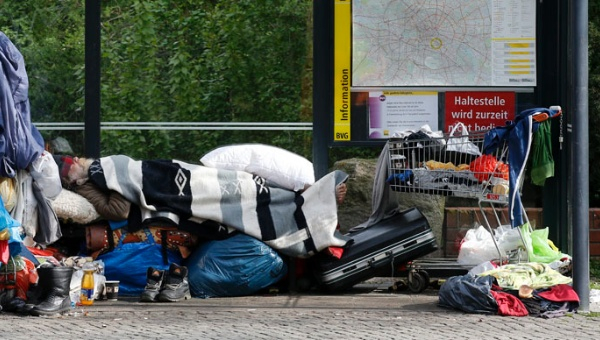
Much of the debate at this year’s Davos is been about how to tackle the obvious inequities of globalisation as some small sections of humanity flourish and other much larger sections languish in what appears to be permanent poverty.
And this language is coming from mainstream Big Business with as much urgency as from the more socially inclusive thinkers from government and the NGOs.
The urgency of tackling this inequality has been highlighted by Oxfam, who released a report at Davos that the world’s richest eight men’s wealth is the equivalent to that of 3.6 billion of the world’s poorest people.
The super-rich are accumulating wealth at such a rapid rate that the world could see its first trillionaire in a mere 25 years, yet 1 in 10 people still earn less than $2 a day, said Oxfam.
How do businessmen look forward to Trump? Find out with Gulf News Editor At Large, Francis Matthew from the Davos, World Economic Forum. Also visit gulfnews.com for updates.
No one is offering a single silver bullet that will solve global inequity at one go, but there is a growing fascination for the minutiae of laws and regulations so as to change governance to allow more inclusive access to markets and a greater spread of prosperity.
This leads to people getting passionate about what seems quite dull topics, like the ease of doing business and the mechanics of moving goods through ports, the amount of bureaucracy required to carry out business.
When doing a quick overview of the Arab world, one business leader from Saudi Arabia pointed out to me that with the exception of the UAE, no government has really tackled this important challenge.
Ease of doing business
And when I asked if this meant lowering tariffs, he was clear that making the process of business easier had a far great impact than dropping tariffs.
Chinese President Xi Jinping portrayed America as a "weird and off-course country". More from the Davos, World Economic Forum with Gulf News Editor At Large, Francis Matthew on gulfnews.com
The debate on how to make globalisation more inclusive has around right from the start, but the old fashioned and fundamentally lazy argument that wealth can just trickle-down in its own way has lost. Instead, people are looking for governments to take joint action and either liberalise or put in place new regulations.
For example, Diana Farrell, Chief Executive Officer of JPMorgan Chase Institute, said even if for decades the evolution of the global economy had been justified by its enormous contribution to economic growth, there had been very limited broad-based social inclusion, and that situation cannot continue.
Inclusiveness
“That approach will need to change,” she said.
“Not only to make globalisation work for more people than it has to date, but to ensure that globalisation has enough of a constituency to continue, and thus play a role in driving economic growth at all.
"We must shift the debate on economic policy — about reforms to international governance, consumption and production policies, trade and investment agreements and more — to solve the issues of growth and social exclusion, and we must do it now rather than later. This must be the case even if it results in a substantially modified form of globalisation with potentially dampened growth”.
That fact that JP Morgan is willing to contemplate slower growth to achieve greater inclusiveness is encouraging.
Kenneth Rogoff of Harvard was less apologetic, pointing out that the rise of prosperity in India and China over the past several decades had led to the most significant reduction in global inequity since the industrial revolution .
But he acknowledged that it was the middle class around the world that has done extremely well over the past few years — as have the very rich — but this process has left many hundreds of millions stranded in poverty, some of whom are stuck in conflict-ridden states with little hope.
Rogoff’s best solution to inequality lies in greater redistribution through taxes and transfers, and in improved and more equal education at all levels.
He dismissed any thought of trade protectionism as benefiting the US or Europe, arguing that it will not bring back disappearing manufacturing jobs but will only raise prices of goods that low-income consumers depend on and accelerate the pace of mechanisation.
This is not an easy debate and you will get as many opinions as you have economists on what is the best way forward, but the fact is it such a key topic at this year’s discussions indicates that a wide range of people do want to do something about it.












